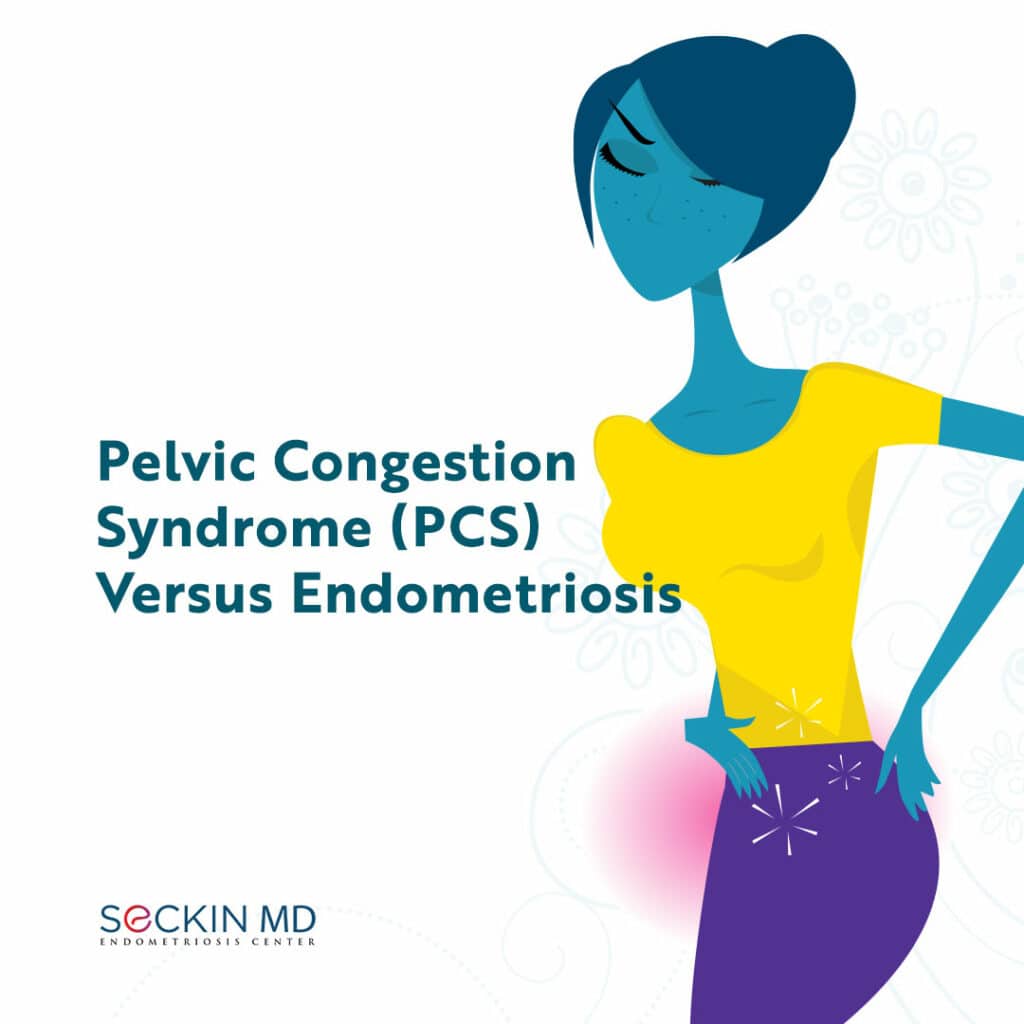Pelvic Congestion Syndrome Vs Endometriosis

Pelvic congestion syndrome (PCS) also known as pelvic venous insufficiency is chronic pain in the pelvis that is not related to menstruation or pregnancy. It occurs when there is a backflow of blood in the pelvic veins causing them to swell and distort their usual shape. Endometriosis, on the other hand, is the growth of endometrial tissue outside the uterine cavity. While endometriosis usually occurs in the pelvis and peritoneum, it can also spread to other parts of the body.
Here is how PCS differs from endometriosis.
Causes
The exact cause of endometriosis remains unclear, but several theories such as retrograde menstruation, stem cells, and uterine abnormalities exist. Researchers think that a combination of these results in the growth of endometrial tissue outside the uterus.
The cause for PCS is not clear either. However, the condition is largely attributed to problems with blood flow in the pelvic and ovarian veins. Veins have valves that prevent the backward flow of blood due to gravity. In the case of PCS, the veins are so dilated that the valves don’t work properly. As a result, blood flows back and tends to accumulate in veins. This causes them to swell and twist, leading to pain and discomfort.
Possible reasons for blood vessel dilation include pregnancy and higher estrogen levels. Lifestyle factors such as excess weight and increased adipose tissue may also contribute to PCS.
While endometriosis can continue even after menopause, PCS is rare in menopausal women.
Symptoms
There are certain overlapping symptoms between endometriosis and PCS, which can complicate diagnosis.
Endometriosis has six cardinal symptoms. These include painful periods, painful intercourse and orgasm, gastrointestinal abnormalities such as excess gas, bloating, and constipation, painful bowel movements, neuropathy, and infertility.
Symptoms such as pelvic pain, dyspareunia, and gastrointestinal abnormalities can also occur in PCS. However, pelvic pain in PCS usually starts only during or after pregnancy. Pelvic pain in endometriosis, on the other hand, occurs independently of pregnancy.
Other PCS symptoms include varicose veins in the pelvis, thighs, vulva, and vagina, pain during urination, and urinary incontinence whenever there is bladder stress such as during laughing, coughing, or other movements.
Diagnosis
The diagnosis of both PCS and endometriosis usually starts with a pelvic exam and imaging tests such as ultrasound and MRI. Imaging can show indications for both endometriosis and PCS. However, laparoscopic deep excision surgery followed by a histological examination is the only gold standard for a confirmed diagnosis of endometriosis.
Doctors can also use laparoscopy to confirm PCS and rule out other gynecological reasons for pain. Pelvic venography is the gold standard for PCS imaging and is used when conventional imaging techniques are inconclusive. In this, the doctor guides a catheter into the ovarian veins and injects a safe contrast dye. The dye is then imaged on an X-ray showing areas where the veins are dilated and twisted and where the blood is pooled.
Treatment
There is no specific cure for either endometriosis or PCS.
For endometriosis, deep excision surgery is the gold standard treatment method for lasting symptom relief. The surgeons at Seckin Endometriosis Center further enhance the effectiveness of laparoscopic deep excision surgery using innovations such as cold excision and Aqua Blue Contrast (ABC)TM to fully excise all visible and identifiable lesions.
In PCS, your doctor may prescribe estrogen suppression medications to reduce pain. If symptoms are severe, they may perform surgical interventions such as ovarian vein embolization or laparoscopy to prevent the backflow of blood in veins. In rare cases, oophorectomy (bilateral salpingo-oophorectomy- removal of both fallopian tubes and ovaries) may be helpful if you are not planning to get pregnant.
Have you received a diagnosis of endometriosis or PCS? Please do not hesitate to share your story by leaving a comment on our post on Facebook or Instagram.
Get a Second Opinion
Our endometriosis specialists are dedicated to providing patients with expert care. Whether you have been diagnosed or are looking to find a doctor, they are ready to help.Our office is located on 872 Fifth Avenue New York, NY 10065.
You may call us at (646) 960-3080 or have your case reviewed by clicking here.